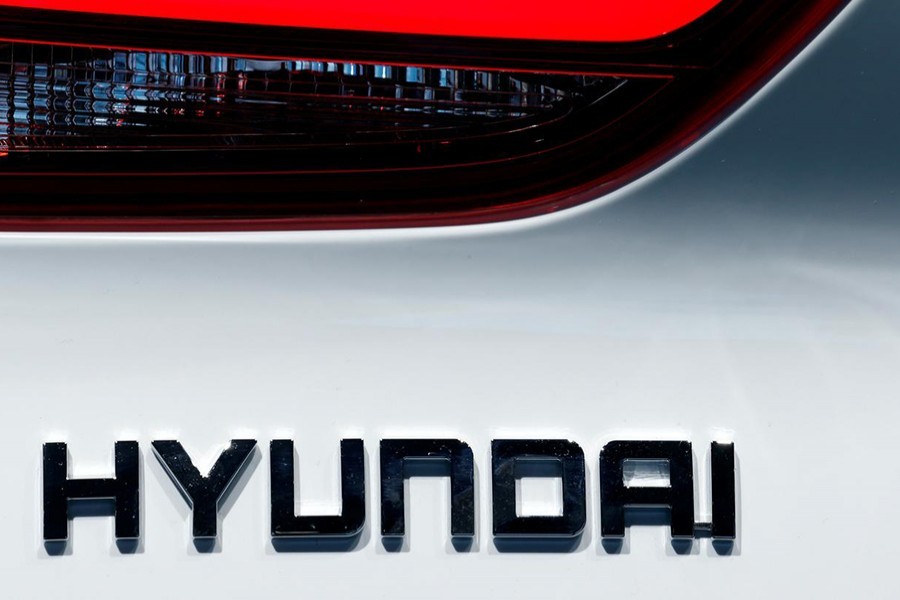Hyundai to invest $51b in future mobility devices, services by 2025

Published :
Updated :

South Korea's biggest carmaker Hyundai Motor said Wednesday that it will invest around 51 billion US dollars in future mobility devices and services by 2025 as part of efforts to facilitate its transition into a smart mobility solution provider.
Hyundai said in a statement that over a six-year period from 2020 to 2025, it will invest 61.1 trillion won (51.2 billion US dollars), or roughly 10 trillion won (8.4 billion US dollars) per year, into research and development (R&D) and future core technologies.
"We want to offer smart mobility experiences that meet the shifting needs of our customers by leveraging advanced technology," said Lee Won-hee, president of chief executive of Hyundai Motor.
"Transforming into a smart mobility solution provider with comprehensive mobility solutions that combine devices and services will be the centerpiece of Hyundai's future strategy," Lee said
Among the total, 41.1 trillion won (34.4 billion US dollars) will be allocated for product and capital expenditure to enhance competitiveness in existing businesses, while 20 trillion won (16.8 billion US dollars) will be dedicated to future technologies such as vehicle electrification, autonomous driving, artificial intelligence (AI), robotics, personal air vehicle (PAV) and new energy area.
Hyundai unveiled the investment plan to speed up its transition into a smart mobility solution provider by combining future mobility devices and services to supply products optimised for its services as well as personalised services, reports Xinhua.
While bolstering profitability in its internal combustion engine (ICE) vehicles, Hyundai planned to address electrified vehicles by first targeting younger drivers and enterprise customers with affordable battery electric vehicles (BEVs) to achieve economies of scale.
The carmaker aimed to sell 670,000 electric vehicles annually, comprising 560,000 BEVs and 110,000 fuel-cell electric vehicles (FCEVs), by 2025, while electrifying most new models in key markets such as South Korea, China, the United States and Europe by 2030 and in emerging markets such as India and Brazil by 2035.
It planned to innovate product quality using digital user experience, AI-based connected services and autonomous driving. For the driverless driving, Society of Automotive Engineers (SAE) Level 2 and 3, as well as Advanced Driver Assistance System (ADAS) for parking, will be available in all models by 2025.
Hyundai aimed to develop a full autonomous driving platform by 2022 and begin mass production by 2024.
Smart mobility services will be fostered as a key future growth driver for Hyundai by bringing together devices and services to offer a personalised mobility solution to customers.
Hyundai will provide services linked to vehicles, including maintenance, repair, financing, insurance and charging. It will also build an integrated mobility platform that analyzes data in and around the vehicle through car connectivity.
With an enhanced understanding of drivers, the automaker planned to offer services tailored to the needs of drivers in every aspect of their lives such as shopping, delivery, streaming and multi-modal mobility services.
The smart mobility services will be optimised for each region. In South Korea, Asia and Australia, Hyundai planned to enter the mobility service market by partnering with leading local players, while first focusing on businesses that combine products and services in Europe and Russia, where the service industry is mature.
Car sharing and robotaxi service demonstrations will capitalise on the anticipated commercialisation of autonomous vehicles of SAE Level 4 or higher in the United States.
With the investment plan, Hyundai set its target for operating profit margin in the automotive division at 8 per cent by 2025, aiming to win a 5 per cent market share in the global automotive industry by the same year.
Hyundai also announced a plan to buy back 300 billion won (251 million US dollars) worth of its own shares from the market by February next year in a bid to boost shareholder value.


 For all latest news, follow The Financial Express Google News channel.
For all latest news, follow The Financial Express Google News channel.